Recently, we had the opportunity to head to Taiwan and check out the Quanta QCT QoolRack liquid-cooled rack solution with a little twist. We were also able to set up an Intel Xeon Max test as well. We had the opportunity to take the QoolRack for a spin and show power savings in a rack due to more efficient liquid cooling versus air cooling.
Since it was (much) cheaper to fly me to Taiwan than it was to ship a rack of liquid-cooled servers, we are going to say QCT is sponsoring this piece.
Quanta QCT QoolRack Liquid Cooling Intel Xeon Max Overview
We have a video you can find here if you prefer to listen along or see some of the components in action:
As always, we suggest watching this in its own tab, window, or app for the best viewing experience.
The QCT QoolRack was in one of the company’s labs. Something fun was that I was last in the lab in 2019, and quite a bit has changed.

Still, it was a bit hard to get photos and video done given the tight aisles.
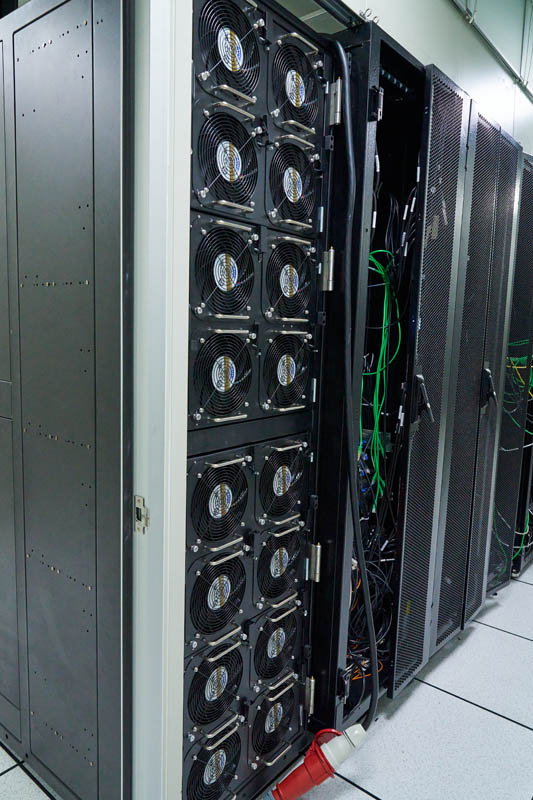
As a result, the QCT folks were kind enough to help unplug and move the entire rack to the small lobby area so that we could get better photos.
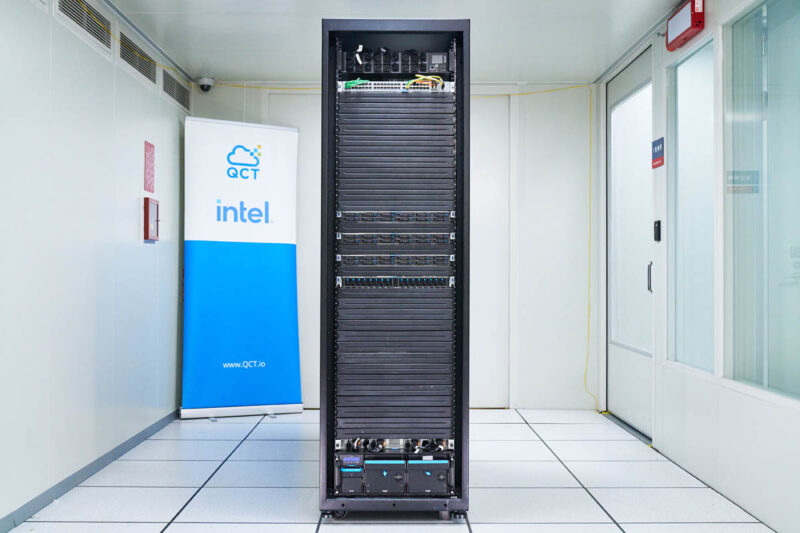
The QCT QoolRack is the company’s fully integrated rack solution. This is not a liquid cooling solution where you buy a few cold plates and components from different vendors. Instead, it is designed to be integrated as a complete multi-node system. We only have four nodes in ours, and the cabling is not as tidy as a production system since this was set up expressly for us to take photos and video.
We are going to start with the front of the QoolRack and work from top to bottom. First, there is a Raritan horizontal PDU. Some liquid cooling racks use horizontal PDUs to keep them above the liquid loops. It is also what we had on hand to make this work.
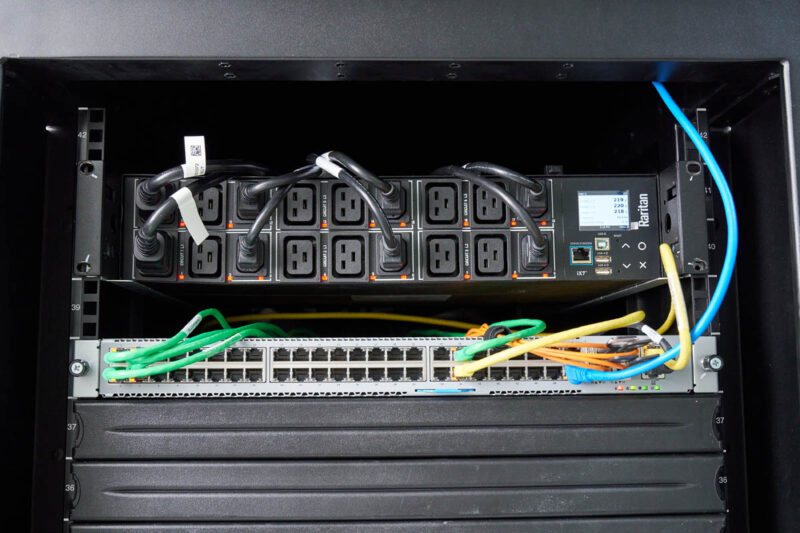
Below that is a QCT QuantaMesh T1048-LB9M. We had a QCT QuantaMesh T1048-LY4A back in 2015 as our lab’s 1GbE switch, so this brought back memories. QCT is not just a server manufacturer. We have been looking at its hyper-scale switches for years.
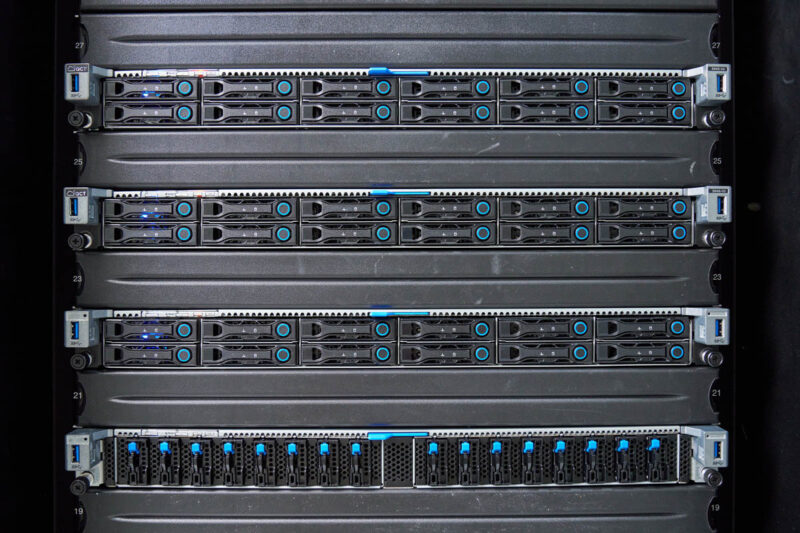
We will look at the QCT QuantaGrid D54X-1U servers in their own section, but the top two in this photo are air-cooled, and the bottom two are liquid-cooled. The top three are 2.5″ storage servers, while there is also an E1.S variant at the bottom.
Below the servers, we have the power sled for the rear door heat exchanger fans as well as the cooling distribution unit or CDU.
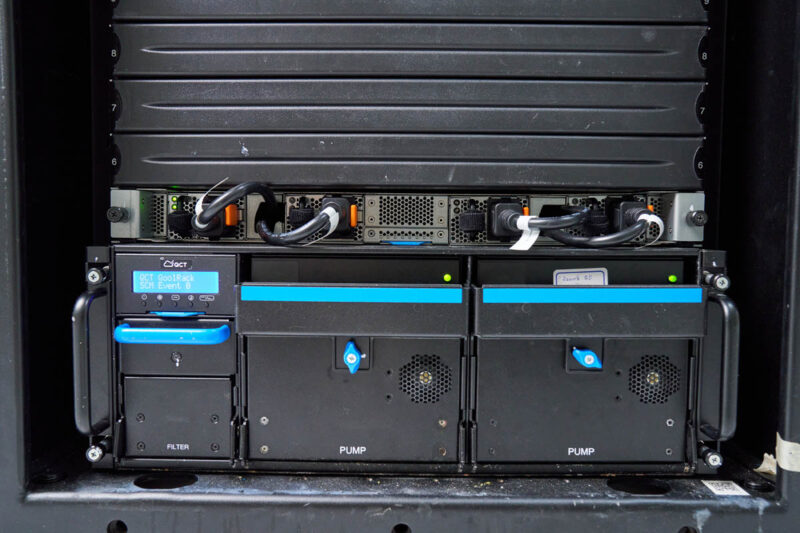
The power sled is necessary to run functions like the fans at the rear of the rack which we will show shortly.
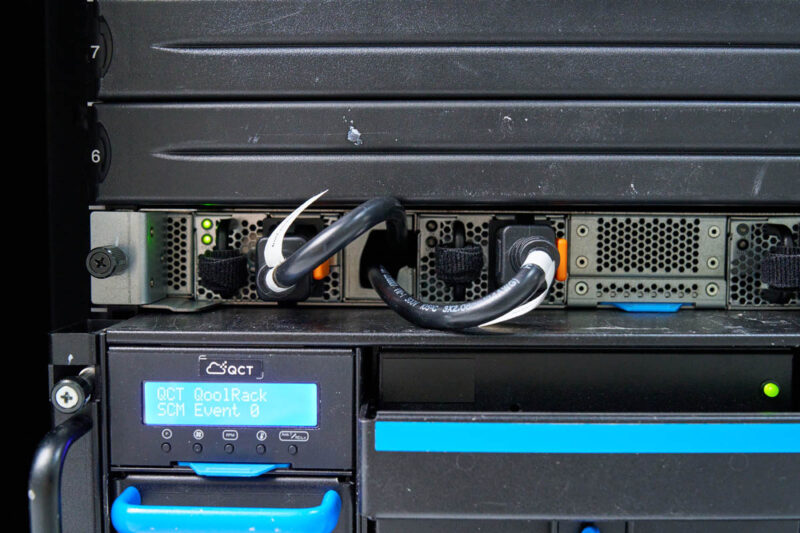
One cool feature of the QoolRack CDU is that it has redundant pump units.
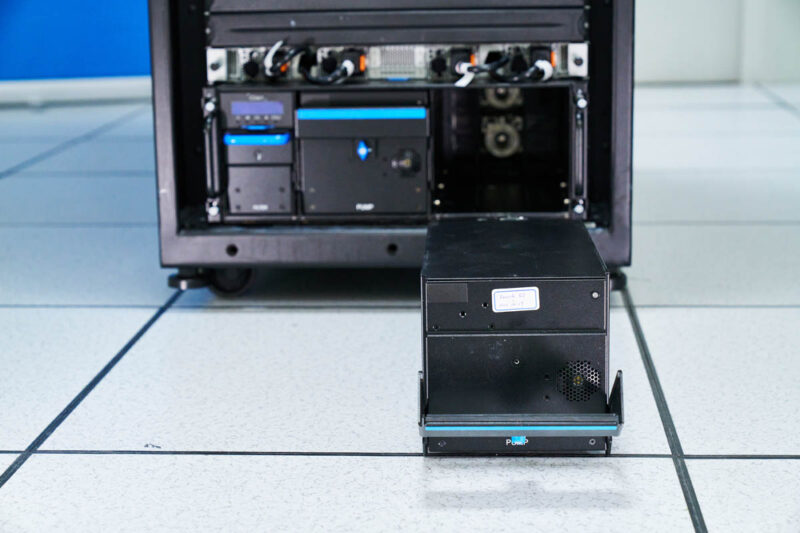
In the video, you can see me pull them out faster than I should have.
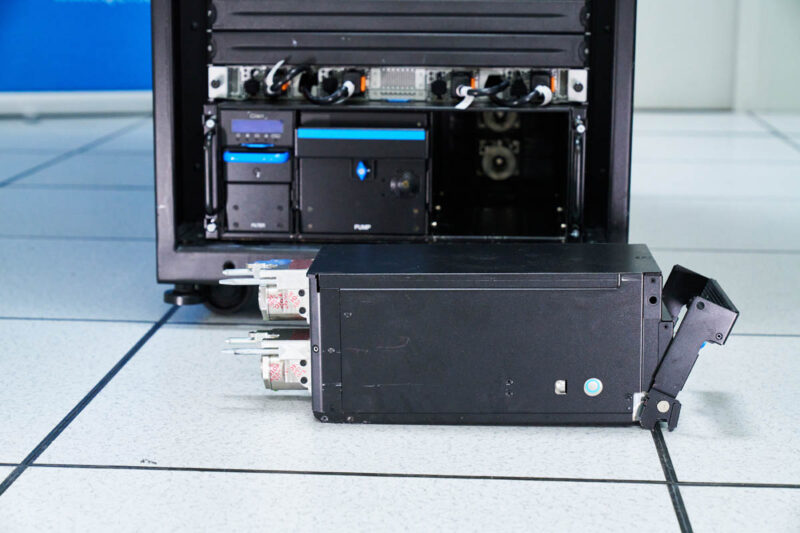
The CDU hooks into QCT’s management platform to feed information that we will show later, such as temperatures, fan rates, faults, and so forth.
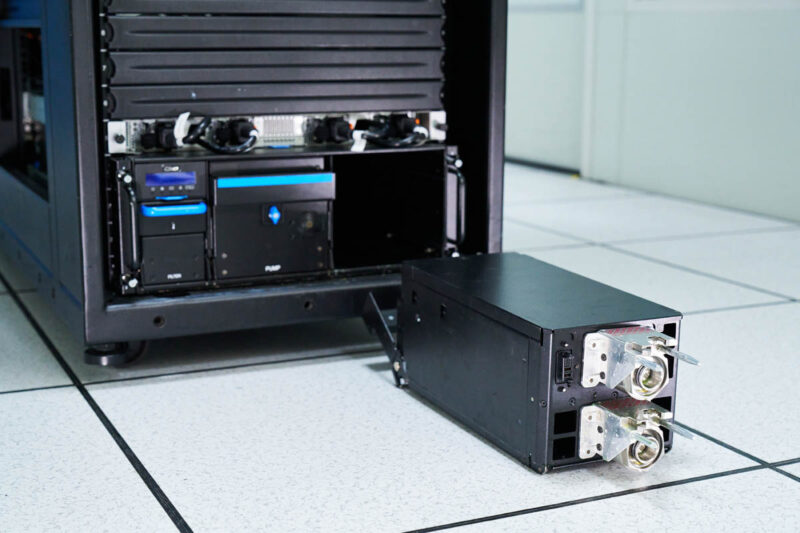
Next, let us take a quick look at the servers we will be using.

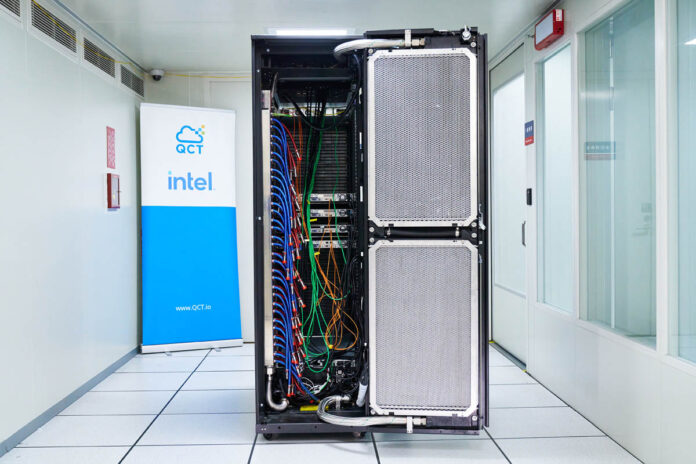


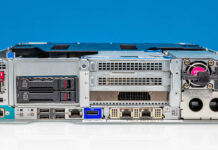
Now show us the GPU version